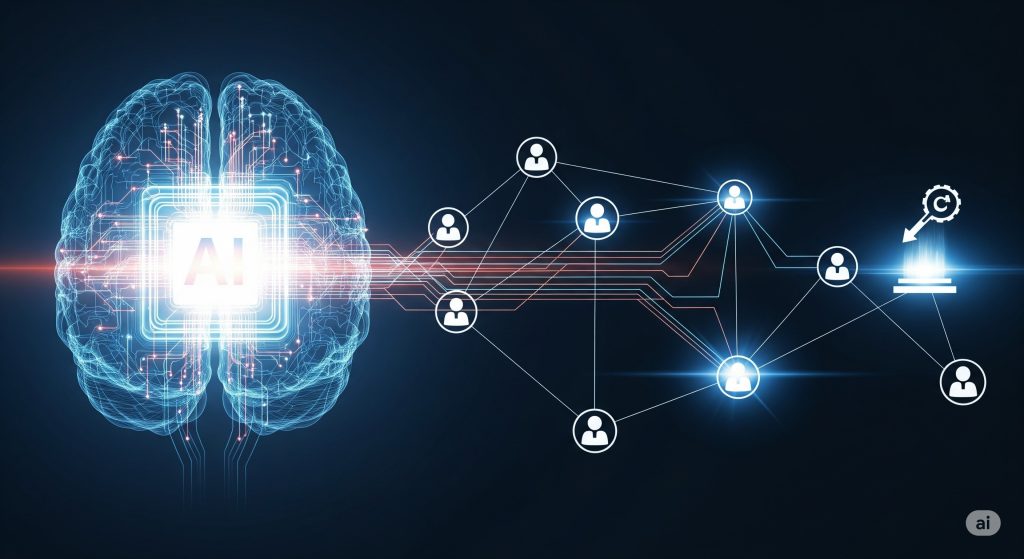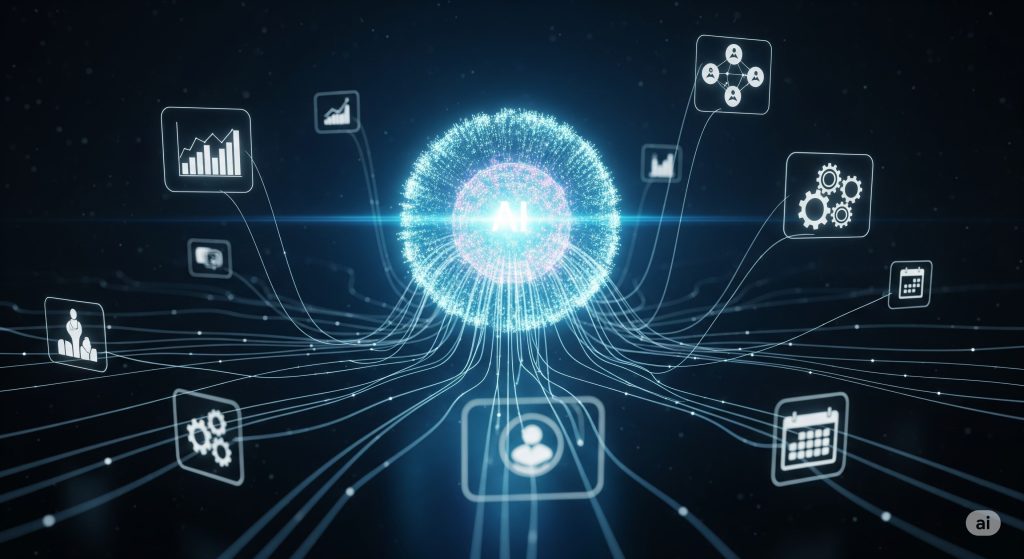Introduction: Embracing AI in Human Resource Management
In the rapidly evolving business world, small and medium-sized enterprises (SMEs) constantly seek innovative solutions to enhance their operations. One transformative approach is the integration of artificial intelligence (AI) into human resource management. By adopting AI, SMEs can streamline recruitment processes, boost employee engagement, and improve performance management, setting the stage for sustained success.
This article explores the incredible potential of AI in transforming HR practices within SMEs, highlighting the benefits it brings and the challenges that need addressing to harness its full power.
The Benefits of AI in Optimizing HR Functions
1. Streamlining Recruitment Processes
AI can revolutionize recruitment for SMEs by automating repetitive tasks and enhancing the candidate selection process. With AI-driven tools, businesses can:
- Automate Candidate Screening: Use algorithms to sift through resumes and identify the best candidates based on predefined criteria.
- Enhance Candidate Experience: Leverage chatbots to engage with candidates quickly and efficiently, providing real-time updates and responses.
By optimizing recruitment, SMEs can save time and resources, allowing HR teams to focus on more strategic activities.
2. Enhancing Employee Engagement
AI tools can play a crucial role in promoting employee engagement within SMEs. By analyzing data and offering personalized insights, these tools can:
- Monitor Employee Sentiment: Use sentiment analysis to evaluate employee feedback and detect areas needing improvement.
- Personalize Learning and Development: Recommend tailored training modules and career development plans based on employee skills and aspirations.
These innovations foster a more engaging work environment, driving employee satisfaction and retention.
Overcoming Challenges in AI Integration
While AI promises significant HR advancements, SMEs face certain challenges when integrating these technologies. Key issues include data privacy concerns and the need for HR professionals to upskill.
1. Addressing Data Privacy Concerns
With AI systems handling sensitive employee data, maintaining privacy and compliance is paramount. SMEs should:
- Implement Robust Data Security Measures: Ensure that AI tools comply with data protection regulations and employ strong encryption methods.
- Establish Clear Data Policies: Develop transparent policies governing data access and usage, informed by employee consent and trust.
By prioritizing data privacy, SMEs can build confidence in AI-driven HR processes.
2. Upskilling HR Professionals
Adopting AI tools requires HR teams to acquire new skills and competencies. To facilitate this transition, SMEs can:
- Invest in Training Programs: Provide comprehensive training on AI technologies and their application in HR functions.
- Foster a Culture of Innovation: Encourage continuous learning and experimentation across HR teams to embrace AI tools confidently.
Through strategic upskilling initiatives, SMEs can ensure their HR teams are well-equipped to leverage AI effectively, unlocking its transformative potential.
Conclusion: Navigating the Future of HR with AI
As SMEs strive to remain competitive in an ever-changing business landscape, the integration of AI into human resource management becomes increasingly vital. By adopting AI tools, these enterprises can achieve more efficient recruitment processes, heightened employee engagement, and superior performance management.
Preparing for a Seamless AI Transition
Successful AI implementation requires strategic planning and readiness to adapt to new technologies. By addressing data privacy concerns and focusing on upskilling HR professionals, SMEs can pave the way for a seamless transition to AI-enhanced operations. Encouraging a culture of innovation within the HR department is essential to embracing AI tools confidently and effectively.
1. Building a Data-Driven Culture
To maximize AI’s potential, SMEs should foster a data-driven culture where decision-making is informed by actionable insights. This involves:
- Leadership Support: Engaging leadership to advocate for AI initiatives, ensuring alignment with organizational goals.
- Promoting Data Literacy: Educating employees about the benefits of data-driven decision-making and its impact on HR practices.
A strong data-driven culture empowers HR teams to leverage AI insights proactively, enhancing overall organizational effectiveness.
2. Continual Adaptation and Innovation
The journey to AI integration in HR is ongoing, with new advancements continually emerging. To stay ahead, SMEs should focus on:
- Investing in Emerging Technologies: Stay abreast of the latest AI innovations and integrate relevant tools that add value to HR functions.
- Encouraging Experimentation: Allow HR teams to explore creative solutions and test new AI applications, refining processes over time.
By fostering an environment of continual adaptation and innovation, SMEs can capitalize on the transformative potential of AI, ensuring a future-ready workforce.
In summary, AI holds the key to revolutionizing human resource management in SMEs. Through careful planning, strategic investment in skills and technologies, and cultivating a data-driven culture, businesses can unlock significant value and stay resilient in a dynamic market. With AI, the future of HR is not just about managing people—it’s about empowering them to drive success.



